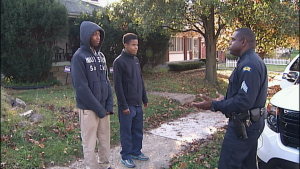As part of his broader 21st-Century Policing Initiative, Attorney General Mark Herring has unveiled a program to educate teens on their rights and responsibilities in interacting with law enforcement. The idea is to keep situations from escalating to the point where the safety of either the youth or police is put in danger.
“For more than two years I’ve been having conversations with law enforcement, parents, ministers, community leaders and others about how we can meet our dual goals of making sure that police can keep our communities safe while guaranteeing that everyone is treated fairly and equally,” said Herring in a press release.
“One thing I heard is that many parents, especially African-American and Latino parents, worry about their child reacting to police in a moment of panic and either getting in more trouble or even creating a potentially dangerous situation. If we can help our young people understand their rights and responsibilities, and help them understand what an officer is seeing and thinking during an encounter, we can take some of the fear out of those interactions and make them safer,” Herring said.
The program is the latest module in the AG’s Virginia Rules program delivered through more than 1,500 law enforcement officers, school resource officers, commonwealth’s attorneys, and community leaders. So far in 2016 some 45,000 Virginia students have participated in the program.
Bacon’s bottom line: This program makes total sense to me. Almost every incident involving police-on-citizen violence results from a situation that starts peacefully and spins out of control. Most would agree that police need training to learn how to deal with these situations. But it takes two to tango, so to speak. Young people could benefit from training as well. Hopefully, the new module will be made available to all high school students, not just the stereotypical disadvantaged African-American kids. Young males of all ethnicities are prone to hot-blooded behavior and need to know how to conduct themselves around the police.



